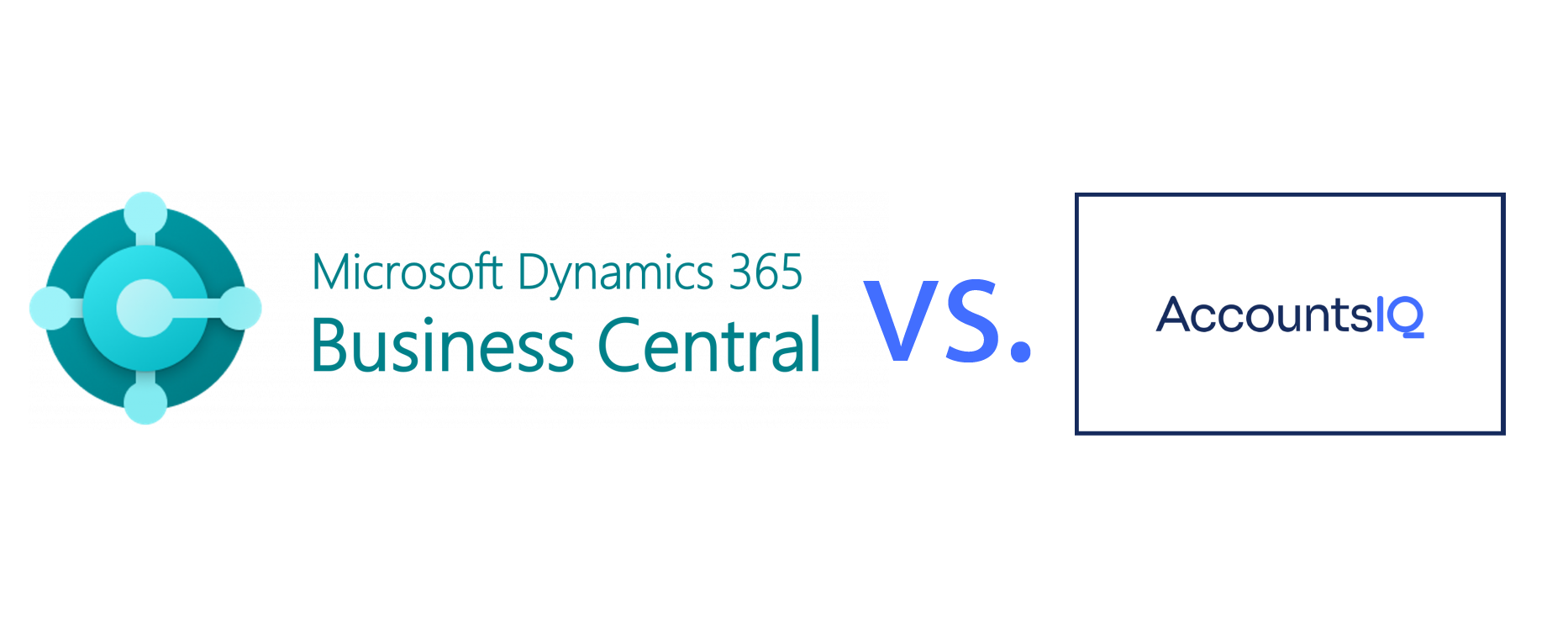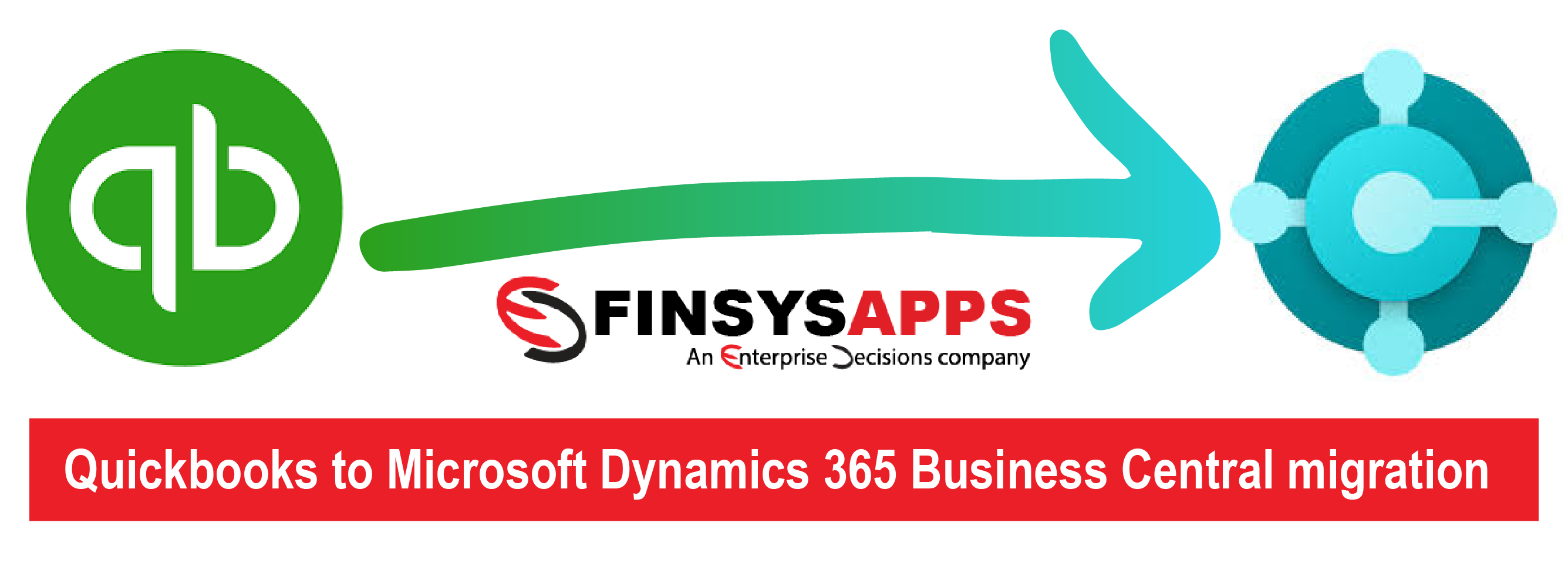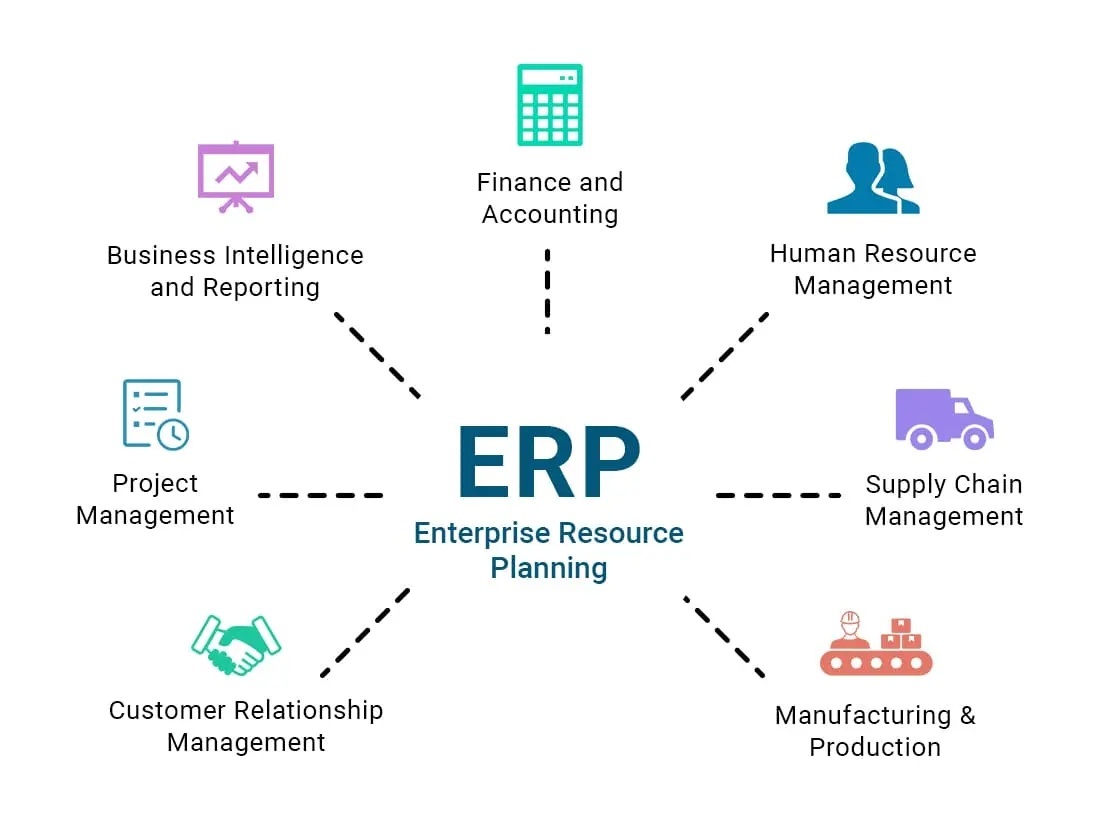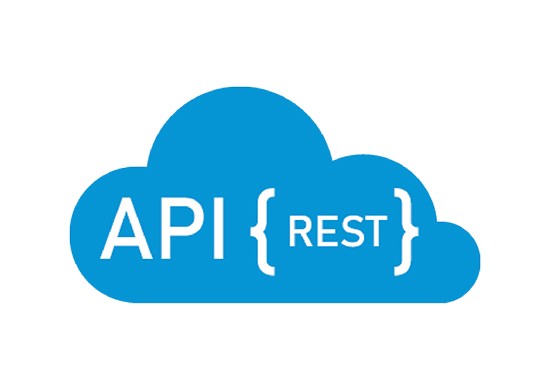Choosing the right financial management and ERP system is critical for organisations seeking to streamline their operations. Two popular options, Microsoft Dynamics 365 Business Central and AccountsIQ, cater to businesses aiming to modernise their finance and operational processes. While both solutions offer powerful capabilities, Dynamics 365 Business Central provides distinct advantages that make it a superior choice for many organisations.
Overview of Dynamics 365 Business Central and AccountsIQ
- Microsoft Dynamics 365 Business Central is a comprehensive ERP platform designed for small to medium-sized enterprises (SMEs). It integrates core business areas such as finance, sales, supply chain, and project management, offering a scalable cloud-based solution.
- AccountsIQ is a cloud-based accounting software focused on financial management, consolidation, and multi-entity reporting. It is particularly popular among organisations with complex group structures.
Key Comparisons
1. Scope of Functionality
- Business Central: Goes beyond financial management by offering a fully integrated ERP system. It covers a wide range of business operations, including inventory management, supply chain automation, manufacturing, and customer relationship management (CRM). This all-in-one approach reduces reliance on third-party applications.
- AccountsIQ: Primarily designed for financial management and reporting. While it excels in group consolidation and multi-currency reporting, it lacks the broader operational features of an ERP.
Advantage: Business Central’s ERP capabilities make it more versatile for growing businesses needing an integrated solution.
2. Scalability and Integration
- Business Central: Built on Microsoft’s ecosystem, it seamlessly integrates with other Microsoft products such as Power BI, Microsoft Teams, and Office 365. It also supports integration with third-party applications via APIs, making it highly scalable for evolving business needs.
- AccountsIQ: Offers limited scalability compared to Business Central. While it integrates with some tools, its focus remains narrow, making it less suitable for businesses with diverse operational requirements.
Advantage: Business Central’s integration with the Microsoft ecosystem provides unmatched scalability and interoperability.
3. Usability and Customisation
- Business Central: Designed for user-friendliness, it features a modern interface and role-specific dashboards. Businesses can customise workflows and extend functionality with Microsoft’s low-code Power Platform tools.
- AccountsIQ: While intuitive for finance teams, it lacks the customisation and extensibility that Business Central offers for broader business needs.
Advantage: Business Central’s customisation capabilities cater to a wider audience, including non-financial users.
4. Reporting and Analytics
- Business Central: Offers advanced analytics through Power BI integration, enabling users to create dynamic, visual reports. It also provides AI-driven insights for predictive forecasting and strategic planning.
- AccountsIQ: Focuses on financial reporting with strong capabilities in group consolidations and multi-currency reporting. However, its analytics tools are less advanced and lack integration with robust visualisation platforms like Power BI.
Advantage: Business Central’s AI-driven analytics and Power BI integration provide deeper insights for informed decision-making.
5. Pricing and Value
- Business Central: While potentially more expensive upfront, it offers comprehensive features that eliminate the need for additional software, delivering long-term value.
- AccountsIQ: More affordable initially, but its limited scope often requires businesses to invest in supplementary tools for non-financial operations.
Advantage: Business Central’s all-in-one capabilities make it a better value proposition for businesses seeking a unified solution.
Why Choose Business Central Over AccountsIQ?
- End-to-End Solution: Business Central offers a comprehensive ERP platform, consolidating finance, operations, sales, and customer service into one solution.
- Microsoft Ecosystem: Seamless integration with Microsoft tools ensures streamlined workflows and enhanced productivity.
- Scalability for Growth: Suitable for growing businesses with its flexibility, customisation, and broad feature set.
- Advanced Analytics: AI-driven insights and Power BI integration provide actionable data for smarter decisions.
- Global Reach: Designed for businesses operating in multiple locations with support for multi-currency, multi-language, and regulatory compliance.
Conclusion
While AccountsIQ is a strong choice for financial consolidation and reporting, Microsoft Dynamics 365 Business Central stands out as the superior option for organisations looking for an all-in-one ERP solution. Its robust features, scalability, and integration capabilities make it a future-proof choice for businesses aiming to streamline operations and drive growth.
Ready to Unlock the Power of Business Central?
Contact Finsys Apps today to learn how we can help you implement a tailored Business Central solution that meets your unique business needs.











